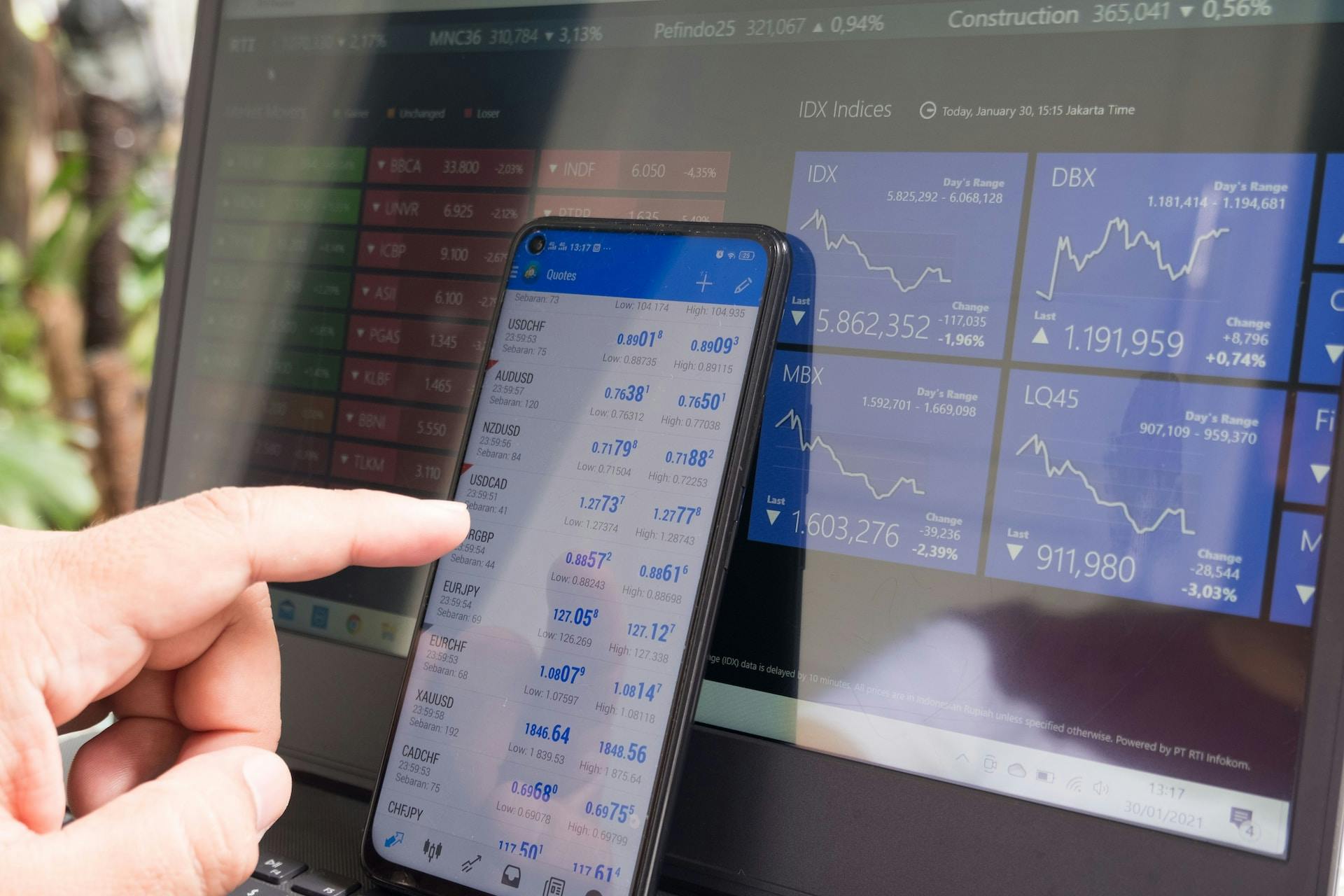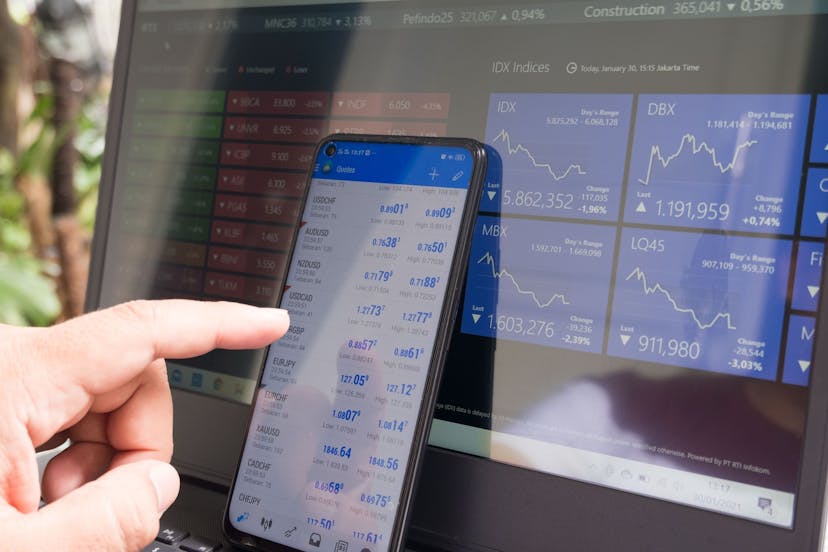Introduction to Forex Trading vs Stock Trading
In the world of financial markets, both forex trading vs stock trading are popular investment avenues that attract individuals looking to grow their wealth. While they share similarities, such as the goal of making a profit, there are fundamental differences between the two. This article aims to shed light on the distinctions between forex trading and stock trading, helping readers make informed decisions based on their investment preferences and goals.
Table of Contents
- What is Forex Trading?
- What is Stock Trading?
- Market Accessibility and Liquidity
- Trading Hours
- Trading Volume and Market Size
- Volatility and Risk
- Fundamental and Technical Analysis
- Leverage and Margin
- Transaction Costs
- Diversification
- Regulatory Environment
- Trading Platforms and Tools
- Market Influencers
- Long-Term Investing vs. Short-Term Speculation
- Conclusion
- FAQs (Frequently Asked Questions)
1. What is Forex Trading?
Forex trading, also known as foreign exchange trading, involves the buying and selling of currencies. The forex market operates as a decentralized global market where participants speculate on the value fluctuations of various currency pairs. Traders aim to profit from changes in exchange rates, leveraging economic and geopolitical factors affecting currencies.
2. What is Stock Trading?
Stock trading refers to the buying and selling of shares or ownership in publicly traded companies. It takes place on stock exchanges, such as the New York Stock Exchange (NYSE) or NASDAQ. Stock traders analyze company financials, industry trends, and market sentiment to make informed decisions about buying or selling shares.
3. Market Accessibility and Liquidity
Forex trading offers high accessibility since the forex market operates 24 hours a day, five days a week. Traders can engage in forex trading from anywhere with an internet connection. On the other hand, stock trading is subject to market hours, typically aligning with the business hours of the respective stock exchange.
Liquidity is another differentiating factor. The forex market is the largest financial market globally, with high trading volume and liquidity. Stock markets, although significant, may have variations in liquidity based on the size and popularity of individual stocks.
4. Trading Hours
Forex trading operates around the clock, allowing traders to execute trades at any time. The market follows a cycle of opening and closing times in different regions, providing continuous trading opportunities. In contrast, stock exchanges have specific trading hours, usually corresponding to the local business hours of the country.
5. Trading Volume and Market Size
The forex market boasts unparalleled trading volume, with trillions of dollars traded daily. This high liquidity ensures ease of execution and minimal slippage. Stock markets have substantial trading volume as well, but they generally pale in comparison to the forex market.
6. Volatility and Risk
Both forex and stock trading involve risks, but they differ in terms of volatility. Forex markets are known for their volatility due to factors such as economic indicators, political events, and market sentiment. Stock markets can also experience volatility, but it is often influenced by company-specific news, earnings reports, or industry developments.
7. Fundamental and Technical Analysis
In forex trading, traders often rely on fundamental analysis to evaluate the economic indicators, interest rates, and geopolitical events that affect currency values. Stock traders focus on analyzing company financials, earnings reports, and industry trends. Additionally, both forex and stock traders employ technical analysis to study price charts, trends, and indicators.
8. Leverage and Margin
Forex trading offers the option of using leverage, allowing traders to control larger positions with smaller capital. Leverage magnifies both potential profits and losses. Stock trading typically involves lower leverage or no leverage at all. Margin requirements for stocks are usually stricter than those for forex trading.
9. Transaction Costs
Forex trading often has lower transaction costs compared to stock trading. In the forex market, traders typically pay spreads, which are the differences between the bid and ask prices. Stock trading involves brokerage fees, commissions, and other charges that can vary based on the broker and the volume of trades.
10. Diversification
Forex trading primarily revolves around currency pairs, limiting the diversification options compared to stock trading. Stock trading allows investors to diversify across different industries, sectors, and geographic regions by investing in various stocks.
11. Regulatory Environment
Both forex and stock trading are subject to regulatory oversight. Forex trading is primarily regulated on a global scale, with regulatory bodies in different countries enforcing standards. Stock trading regulations vary from country to country, and stock exchanges have their own set of rules and listing requirements.
12. Trading Platforms and Tools
Forex trading platforms offer a range of features and tools designed specifically for currency trading. These platforms often provide real-time charts, technical analysis indicators, and news feeds. Stock trading platforms offer similar functionalities but are tailored to stock trading, providing access to stock quotes, market data, and research tools.
13. Market Influencers
Forex markets are heavily influenced by economic indicators, interest rates, political events, and central bank actions. Stock markets, while also influenced by economic factors, are significantly affected by company-specific news, earnings reports, mergers and acquisitions, and overall market sentiment.
14. Long-Term Investing vs. Short-Term Speculation
Stock trading often attracts long-term investors looking to participate in a company’s growth and earn dividends. Forex trading, on the other hand, is frequently associated with short-term speculation and currency price fluctuations. Forex traders aim to profit from shorter-term price movements and capitalize on market volatility.
15. Conclusion to Forex Trading vs Stock Trading
In summary, forex trading and stock trading differ in various aspects, including market accessibility, liquidity, trading hours, trading volume, volatility, analysis methods, leverage, transaction costs, diversification options, regulatory environment, and market influencers. Understanding these differences is essential for individuals considering investing in either market. It’s crucial to align your trading preferences, risk tolerance, and investment goals with the market that best suits your needs.
FAQs (Frequently Asked Questions)
- Is forex trading riskier than stock trading?
- Both forex trading and stock trading carry risks. The risk level depends on factors such as market conditions, individual trading strategies, and risk management practices.
- Which market offers higher profit potential: forex or stocks?
- Both markets offer profit potential, but the outcome depends on various factors, including market conditions, trading skills, and risk management.
- Can I trade both forex and stocks simultaneously?
- Yes, it is possible to trade both forex and stocks simultaneously. Many traders diversify their portfolios by participating in both markets.
- Do I need a large capital to start trading forex or stocks?
- The required capital varies based on individual preferences and the trading strategy employed. While some traders start with small amounts, others may choose to invest more significant capital.
- What are some popular trading platforms for forex and stock trading?
- Popular trading platforms for forex trading include MetaTrader, cTrader, and TradingView. For stock trading, platforms like E*TRADE, TD Ameritrade, and Interactive Brokers are well-known options.

